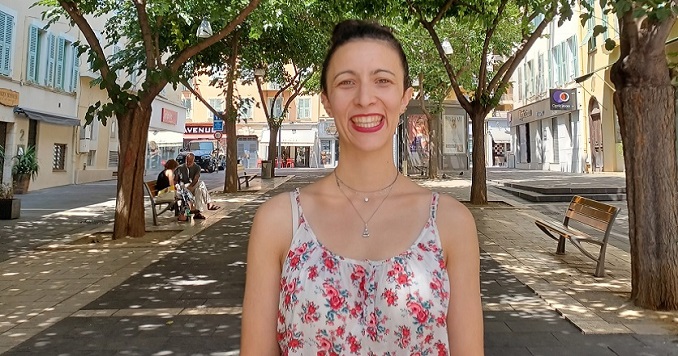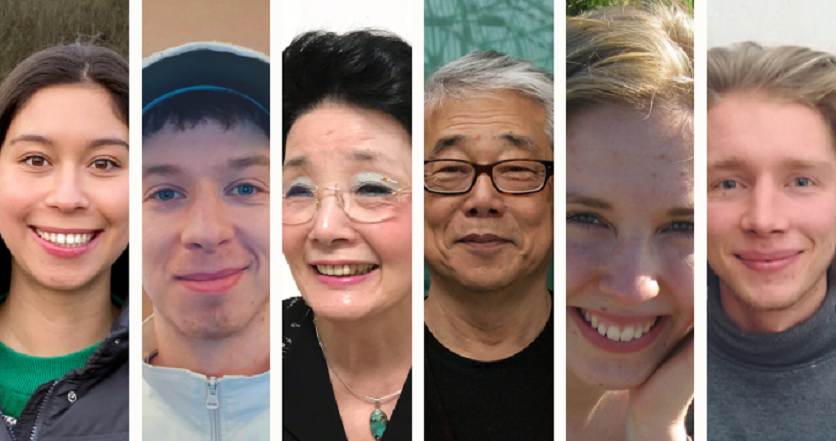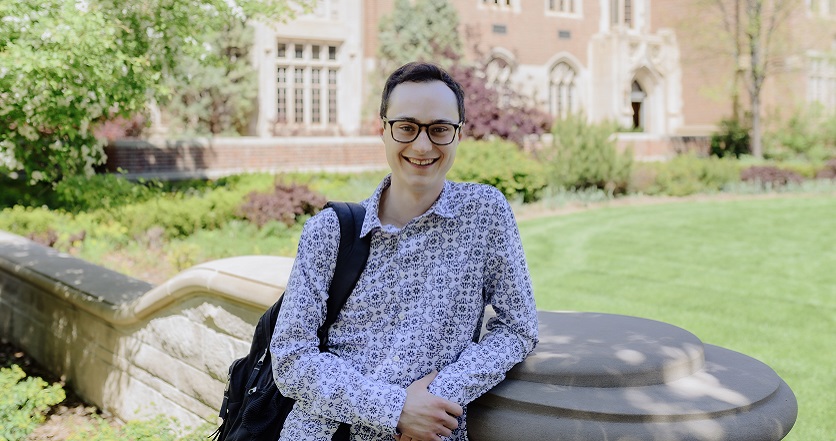“I’m Not Always Right!”—The Open Heart of Dialogue

The purpose of Buddhist practice is to expand our lives. Jade Janninelle, a member of mouvement bouddhiste Soka, the Soka Gakkai organization in France, describes the far-reaching effects of her decision to challenge her prejudices by committing to having open-hearted exchanges with others.
Has connecting with others always been natural for you?
Talking to like-minded people has always been very easy, but I’ve always had a lot more trouble connecting with those whose ideas are different from mine! I am challenging this through my Buddhist practice and I chant a lot in the morning to overcome my arrogance—anger, even—which makes me put up barriers against those who don’t share my opinions. It’s these barriers that prevent deep dialogue from taking place. I really want to overcome my prejudice, to be able to cherish each person’s individuality. I want to actualize President Daisaku Ikeda’s vision of peace—his encouragement to connect with people through dialogue and friendship.
It’s these barriers that prevent deep dialogue from taking place. I really want to overcome my prejudice, to be able to cherish each person’s individuality.
It takes courage for me to share my ideas without worrying about the reaction of others. This willingness to have dialogue and to connect with others is always a great challenge in my efforts to grow and transform myself so that I can be myself and share my opinions without fear.
How do you react to someone whose words bother you?
Recently, I attended a religious conference where the speaker said something about Buddhism that offended me. I felt a kind of indignation. But, in the end, it made me want to look further, so I asked questions to better understand. I took this as an opportunity to accept that perhaps I am not the one who is always right. By opening myself up to other points of view, even if I have to shake up my own, I become aware that there are opinions other than mine that may be relevant.
Society is inclined to emphasize differences. But dialogue with others allows us to discover new things. Instead of us staying focused on our differences, dialogue for peace can refocus us on our commonalities, our shared values. It is about going beyond our differences to return to what we have in common: our humanity.
In what ways have you benefited from this approach?
In my family—both my mother and I practice Buddhism—the dialogue with my brother has always been a bit complicated. Last year, however, we were really able to create harmony between us. My brother told my mother how our home was the only place where he felt free to express his feelings. Our efforts to create this atmosphere for dialogue allowed my brother to express what makes him feel angry and hurt. Since then, he has also been practicing Buddhism.
Regarding my Buddhist activities, my determination is to be there for every young woman. I have sometimes been judgmental of others and my challenge has been to move beyond that and refocus on what really matters: to cherish the person above all, and to share the joy and benefits of Buddhist practice through our exchanges.
This dynamic of dialogue has allowed me to open my heart every day and to transform my intolerance and arrogance into benevolence and respect.
Also, in carrying out my organizational leadership responsibilities, I tended to not seek out advice. But, thanks to the many dialogues I had with my coleader, a great deal of trust has been created. With her, I feel free to share everything—there is no judgment. I want that same spirit of trust and openness to pervade the relationships among all the members in my region.
What do you gain by going beyond your limitations to have these dialogues?
The first thing I experience is the not-so-good feeling of seeing my flaws! But then, I wonder how I can turn these flaws into a quality that I will enjoy. I don’t often change my ideas because I usually think my ideas are good! But now, I get joy from thinking, first, I’m going to grow as a person, and second, how am I going to get there? That is the beauty of Buddhist practice. So I will develop myself even if I don’t know how, and I will turn my weaknesses into strengths. And what is very joyful is that through this effort I will encourage others. This dynamic of dialogue has allowed me to open my heart every day and to transform my intolerance and arrogance into benevolence and respect.
My intention is to experience everything I need to to be able to encourage others. I know that by going beyond my limitations, I can better understand others. If I can do this, I can attest that it is possible to transform one’s heart and become happy. I want to continue to have authentic dialogues. As second Soka Gakkai president Josei Toda pointed out: “Actively engaging others in dialogue is a struggle that requires us to employ the full extent of our character and integrity, and it is the only way to establish ties of genuine trust.” And, as President Ikeda says: “When we give our all in our encounters with others, something new is born, history changes, and deep friendships are formed.”
Adapted from an article in the March 2023 issue of Valeurs Humaines, mouvement bouddhiste Soka.







